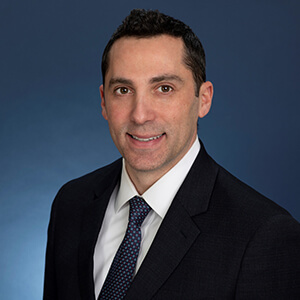How did you position your biotechs as M&A targets?
Roberto Bellini: We (BELLUS) licensed a chronic cough drug that was preclinical in 2017. Probably one of the dumbest things I could have done was I told the board we’re going to do the study, get the data, and sell to Big Pharma. And honestly, I spent the next seven years trying to walk that back with my board. I realized it was much more important to focus on building the business.
Dan O’Connor: There’s things that you’re not working on that you should sell. But if it’s your active developmental program, doing any kind of overt knocking on the door of pharma generally doesn’t work. It makes you lose your focus. And eventually, if you do good work, they’re going to come to you anyway.
“Doing any kind of overt knocking on the door of pharma generally doesn’t work: it makes you lose your focus.”
Dan O’Connor, former CEO, Ambrx Biopharma
Bill Meury: I knew that my company [Karuna] had two value creation paths: there’s the stand-alone path, and of course there’s M&A. I knew the only path I controlled was the stand-alone. We were focused on only one thing, building the company.
Mark McKenna: Bill and I both came from Big Pharma, and having sat on the other side of the wall, you kind of smell the sellers. It doesn’t only destroy value; it oftentimes ruins the deal.
How do you see the current prospects for biopharma M&A?
McKenna: I personally think we’re going to see a significant amount of activity. Everyone’s busy, and it’s the perfect storm. With $320bn of LoE going out over the next seven years, you can either cut your way to a future or you need to start buying.
Bellini: The LoE-impacted companies are desperate. They will build something new if they think that’s the right move. It’s forcing them to think much further outside the normal kind of box.
“The LoE-impacted companies are desperate… it’s forcing them to think much further outside the normal kind of box.”
Roberto Bellini, Managing Partner, BSQUARED Capital
McKenna: My understanding is there’s a lot more conversations going on around private companies than public companies.
How do tough macroeconomic conditions and regulatory scrutiny influence a decision to sell?
Meury: If you’re building a good business, you will get through these periods. I think the investors and buyers think about it this way too. They know the difference between what’s transient and what is permanent.
“Investors and buyers know the difference between what’s transient and what is permanent.”
Bill Meury, CEO, Anthos Therapeutics
McKenna: The FTC wasn’t one of the top three factors in our specific situation. If you get a second request, the numbers are a little bit alarming: 35 to 45% of these deals will get recut, or not done at all. The delay can be complicated, and you have to think about that. But it’s not at the top of the list.
What are pharma companies looking for in a target today?
O’Connor: I think there’s a bias towards them buying assets that are in the footprint of their existing programs. The change to that, though, is if it’s a platform technology. When PD-1 checkpoints came in, a lot of pharma companies were almost like, ‘I have to own a checkpoint.’ I think you see that a little bit with ADCs now: they’re saying, we need a presence in this space, because it’s the future.
McKenna: CEOs are all getting questions from the board and investors if they’re not in the cardiometabolic space today. My bet is that over the next 12 months, you’re going to see those that are not in this space make bets, because they want those questions to die down.
What are the best tips for companies ultimately seeking a buyer?
O’Connor: Build your data room. Work to get that ship shape, because if you do end up having those conversations, you’re going to want a very well-honed data room.
Meury: If you’re running a company, you should have a very well-developed point of view about the intrinsic value of your business. If there’s a mistake smaller companies make, it’s overestimating the marketability of your product, and underestimating time to market, investment, basic risk, market inertia.
McKenna: You’re seeing more partnerships, smaller transactions. Why is that? Because pharma doesn’t want to take the next 10 years to add on to their own development efforts. They’re looking for near-term revenue. Time to market matters probably more than anything else in your DCF.
“Pharma is looking for near-term revenue; time to market matters probably more than anything else in your DCF.”
Mark McKenna, CEO, Mirador Therapeutics






